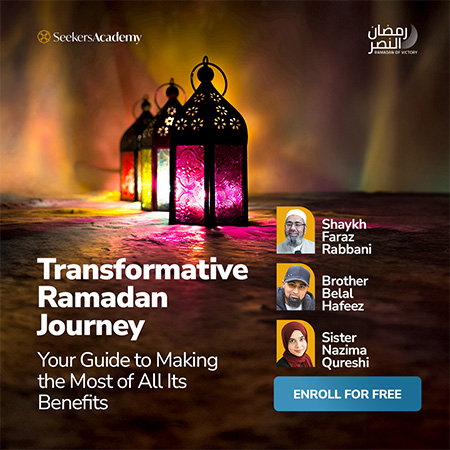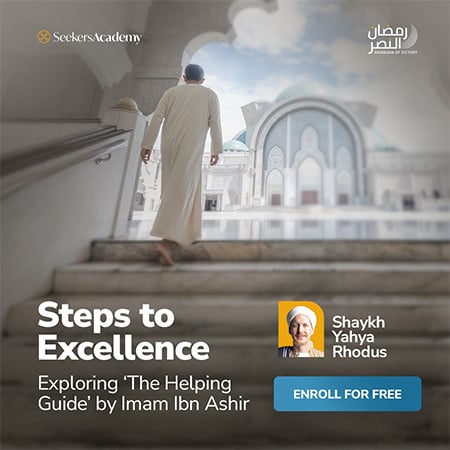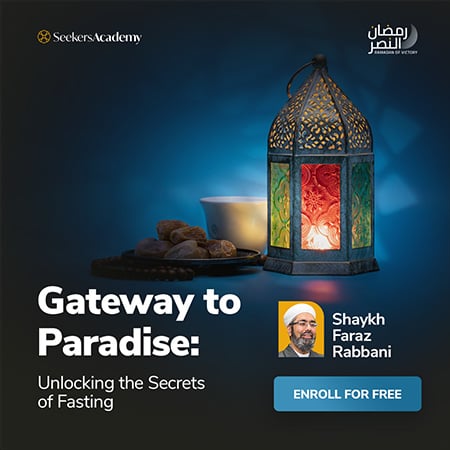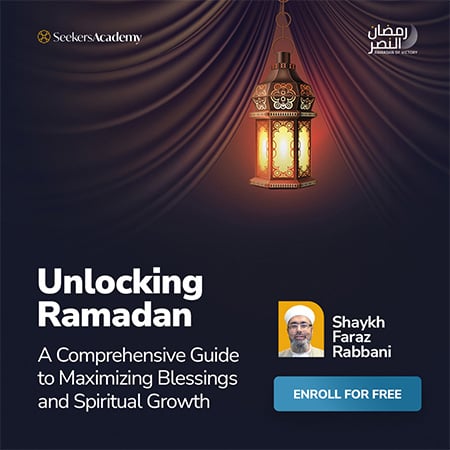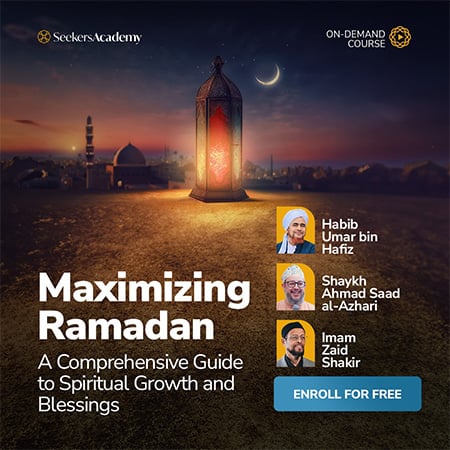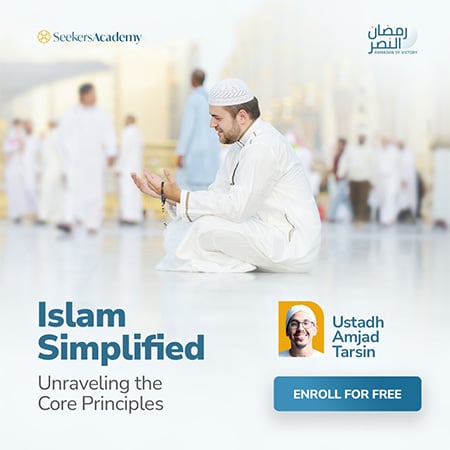
New to Islam? Or just looking to brush up on the basics? This course features an explanation of the clearest, concise and comprehensive introduction to Islam in print, Being Muslim, by Ustadh Asad Tarsin. The course is designed to include what every Muslim should know as well as those things that are essential to a proper understanding of the overall vision and spirit of Islam.
- Teacher: Ustadh Amjad Tarsin
This course is based on the clearest, concise and comprehensive introduction to Islam in print: Being Muslim, by Ustadh Asad Tarsin. This course features an explanation of the book by the author himself. Being Muslim presents content that is both reliable—rooted in Islamic scholarship—and not obscured in jargon and difficult terminology. Using the Hadith of Gabriel as a basic framework. It covers the basics of Islamic belief, essentials of worship, spiritual refinement, a brief examination of the life of the Prophet Muhammad, an introduction to the Qur’an, and guidelines for living an Islamically ethical lifestyle.
- What do Muslims believe?
- How do Muslims worship?
- What is Islamic spirituality?
- What is the Shari`ah?
- What is the Qur'an?
- What does it mean to be a Muslim today


